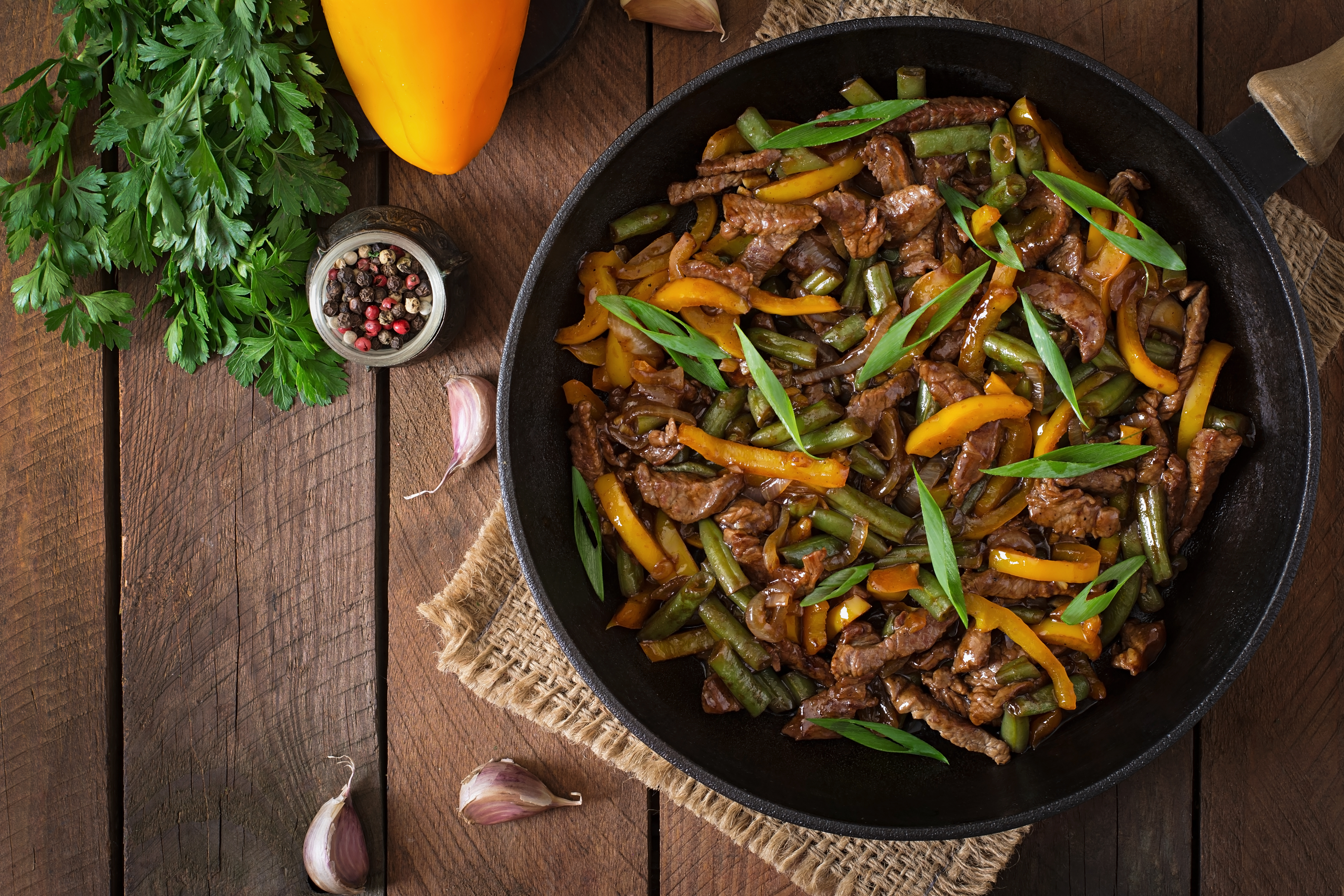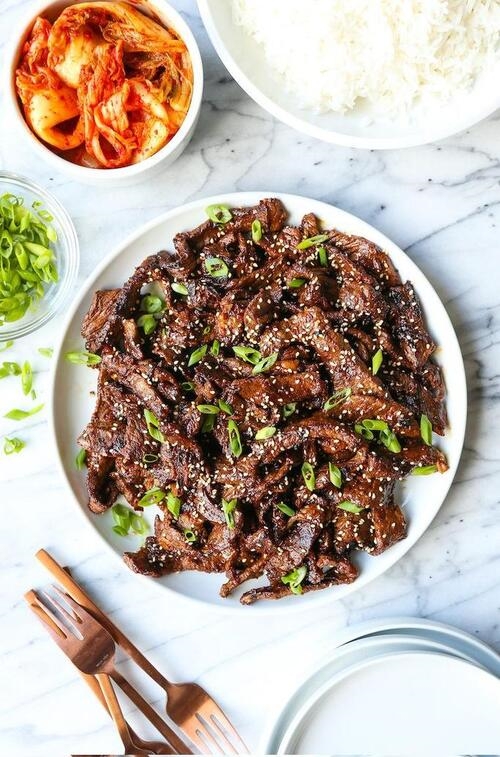Some flavors are more than just taste. They have sound, color, and memory. When they enter the mouth, they carry the mind to a distant home, to the gentle simmer of a pot, to a hand lovingly stirring the food, to warm conversations shared across generations.
In Eastern cultures, food is more than sustenance. Every bite carries respect for the earth, patience in preparation, and love in cooking. The dining table is not just a place to eat; it is a place to learn, to find peace, and to be together.
When Korean food is mentioned, many recall kimchi: spicy, vibrant, and bold. But beyond this fiery image lies a quietly simmering dish—bulgogi. Thin slices of marinated meat, holding within them the warmth of home, the kindness of mothers, and the patience of generations.

Each family has its own recipe. Some prefer it sweeter; others add sesame seeds and vegetables. This variety speaks to the deep connection between food and family memory. Every piece of bulgogi carries the calm of a kitchen in a Seoul home, the murmur of conversation beside a hot pan, and a silent smile that expresses love without words.
Thin slices of meat, marinated for hours in a blend of soy sauce, Asian pear, garlic, and sesame, cooked gently over heat until perfectly tender. A simple dish in appearance, yet every bite reveals the care and affection of Korean mothers.
Bulgogi offers a familiar taste to many; somewhere between traditional Iranian kebab and home-cooked meals, a gentle sweetness and a delicate balance of flavors. Perhaps that is why this dish, though from a distant land, feels close—bringing with it a sense of warmth and connection.
If kimchi represents the bold and lively face of Korean cuisine, bulgogi is its calm, dignified, and profound counterpart. Bite by bite, it tells a story of simplicity, creativity, and the warmth of home.

Bulgogi shows how a nation can create a delicious and cultural dish using simple, accessible ingredients. In a world where flavors cross borders, this dish reminds us that culture is transmitted not only through language but also through food.
Bulgogi is more than a meal. It is an ambassador of Korea’s gentleness and kindness. When you taste it, you touch a culture you may not know by language or history, but through flavor, a universal language of connection. In a world where tastes build bridges stronger than words, bulgogi is a path to dialogue, friendship, and respect.
Within this marinated meat lies history. Dining traditions. The place of family. The quiet voice of a mother in the kitchen. And the moment when, sitting in another home, you are neither stranger nor hungry—but a guest embraced wholeheartedly by flavor.
How about this article?
- Like8
- Support6
- Amazing1
- Sad0
- Curious2
- Insightful0


